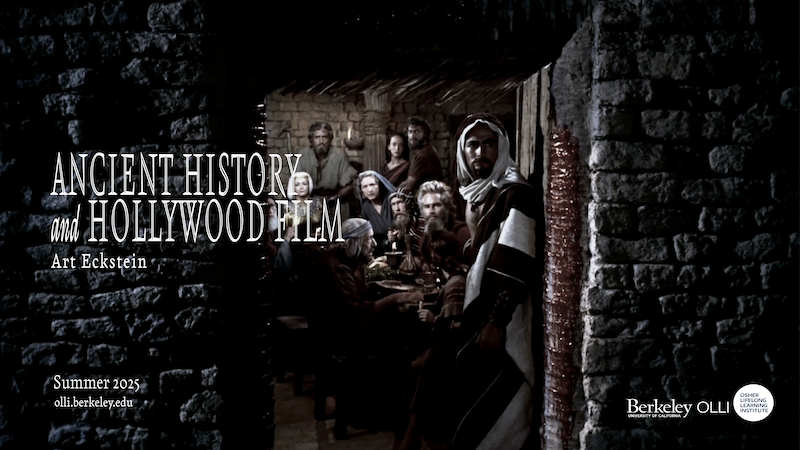Ancient History and Hollywood Film

In this course we will view four Hollywood films that illustrate not simply the film industry's conceptions of the Ancient World but also the films as a reflection of contemporary American cultural concerns and social fantasies. The four films we will see are done in a chronological order of events as they occurred in the ancient Mediterranean: first The Ten Commandments (1956); then Troy (2004); then Spartacus (1961) and finally The Last Temptation of Christ (1989).
Faculty Bio
Arthur M. Eckstein is a professor emeritus of history at the University of Maryland. His scholarship includes imperialism in the ancient and modern worlds. He is the author of many books, including The Searchers: Essays and Reflections on John Ford's Classic Western and Bad Moon Rising: How the Weather Underground Beat the FBI and Lost the Revolution.
This is a Livestreamed + Recorded Course
- Classes will stream live on the scheduled day and time
- Classes will also be video recorded
- Please note: Films should be viewed in advance. An optional reading list will be provided. Course sessions will consist of a 40-minute lecture on the background of each film, then a five minute break, and then a 45 minute period for discussion.
- You must be a current OLLI @Berkeley member to register. Learn about membership, including our fee assistance program.
Schedule Highlights
- Course starts on Tuesday, June 3, and ends on Tuesday, June 24
- Classes meet for 4 weeks, 1.5 hours per session (10:30–noon)
- All course materials, including videos, will remain available to view and enjoy through Aug. 31
Member Praise for Art Eckstein
"Professor Eckstein's deep knowledge and passion for film was inspiring and gave me new insights."
"Great instructor! He was knowledgeable about history, politics, and psychology. He placed movies in context and provided personal experience in a very useful and entertaining way."
Faculty Q&A
- Read an interview with Art Eckstein from our archive.